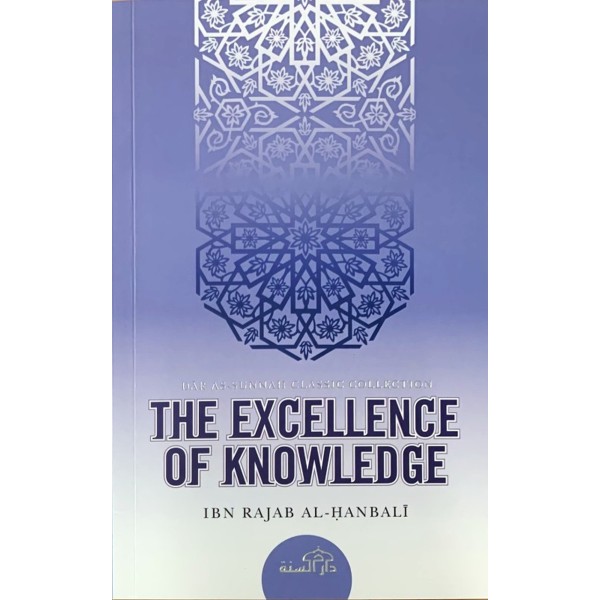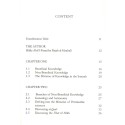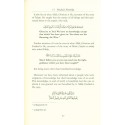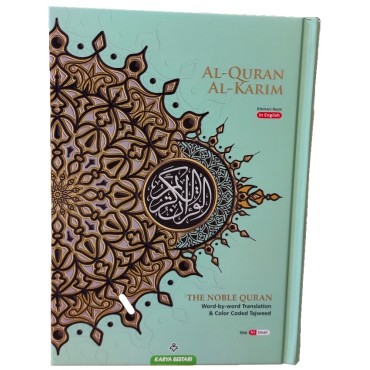Ibn Rajab Al Hanbali
This Small treatise brings to light many amazing and intricate points of benefit with regard to knowledge and discerning between which of its types are beneficial and non-beneficial.The Prophet praised some forms of knowledge while condemning others, at times he would ask Allah to grant him beneficial knowledge while at other times he would seek refuge in Him from non-beneficial knowledge.
It is for this reason that the author took on the task of clarifying the various types, characteristics, signs and consequences of both beneficial knowledge and non-beneficial knowledge in this short treatise, as well as affirming the superiority of the knowledge of the predecessors (Salaf) over the knowledge of those who succeeded them (Khalaf).
A Good book with reminders and admonitions to assist and guide any sincere Muslim in his quest for seeking knowledge.
About Imam Ibn Rajab al Hanbali (736 - 795 AH)
He was the noble Imaam, the Haafidh, the Critic, Zayn-ud-Deen Abdur-Rahmaan bin Ahmad bin bdir-Rahmaan bin al-Hasan bin Muhammad bin Abil-Barakaat Mas ood As-Salaamee Al-Baghdaadee (due to his place of birth), Al-Hanbalee (due to his madh-hab), Ad-Dimashqee (due to his place of residence and death). His kunyah was Abul-Faraj, and his nickname was Ibn Rajab, which was the nickname of his grandfather who was born in that month (of Rajab).
He was born in Baghdad in 736H and was raised by a knowledgeable family, firmly rooted in knowledge, nobility and righteousness. His father played the greatest role in directing him towards the beneficial knowledge.
Al-Haafidh Ibn Rajab, may Allaah have mercy on him, was deeply attached to the works of Shaikh-ul-Islaam Ibn Taimiyyah, for he would issue legal rulings according to them and would constantly reference his books. This is since he served as a student under Ibn Qayyim al-Jawziyyah, the most outstanding student of Shaikh-ul-Islaam Ibn Taimiyyah, may Allah have mercy on all of them. But in spite of this, he (rahimahullaah) wasn t a blind follower or a fanatical adherent (to his teacher). Rather, he would review, authenticate, verify and follow the evidences.
(9781904336198/1727)
This Small treatise brings to light many amazing and intricate points of benefit with regard to knowledge and discerning between which of its types are beneficial and non-beneficial.The Prophet praised some forms of knowledge while condemning others, at times he would ask Allah to grant him beneficial knowledge while at other times he would seek refuge in Him from non-beneficial knowledge.
It is for this reason that the author took on the task of clarifying the various types, characteristics, signs and consequences of both beneficial knowledge and non-beneficial knowledge in this short treatise, as well as affirming the superiority of the knowledge of the predecessors (Salaf) over the knowledge of those who succeeded them (Khalaf).
A Good book with reminders and admonitions to assist and guide any sincere Muslim in his quest for seeking knowledge.
About Imam Ibn Rajab al Hanbali (736 - 795 AH)
He was the noble Imaam, the Haafidh, the Critic, Zayn-ud-Deen Abdur-Rahmaan bin Ahmad bin bdir-Rahmaan bin al-Hasan bin Muhammad bin Abil-Barakaat Mas ood As-Salaamee Al-Baghdaadee (due to his place of birth), Al-Hanbalee (due to his madh-hab), Ad-Dimashqee (due to his place of residence and death). His kunyah was Abul-Faraj, and his nickname was Ibn Rajab, which was the nickname of his grandfather who was born in that month (of Rajab).
He was born in Baghdad in 736H and was raised by a knowledgeable family, firmly rooted in knowledge, nobility and righteousness. His father played the greatest role in directing him towards the beneficial knowledge.
Al-Haafidh Ibn Rajab, may Allaah have mercy on him, was deeply attached to the works of Shaikh-ul-Islaam Ibn Taimiyyah, for he would issue legal rulings according to them and would constantly reference his books. This is since he served as a student under Ibn Qayyim al-Jawziyyah, the most outstanding student of Shaikh-ul-Islaam Ibn Taimiyyah, may Allah have mercy on all of them. But in spite of this, he (rahimahullaah) wasn t a blind follower or a fanatical adherent (to his teacher). Rather, he would review, authenticate, verify and follow the evidences.
(9781904336198/1727)









